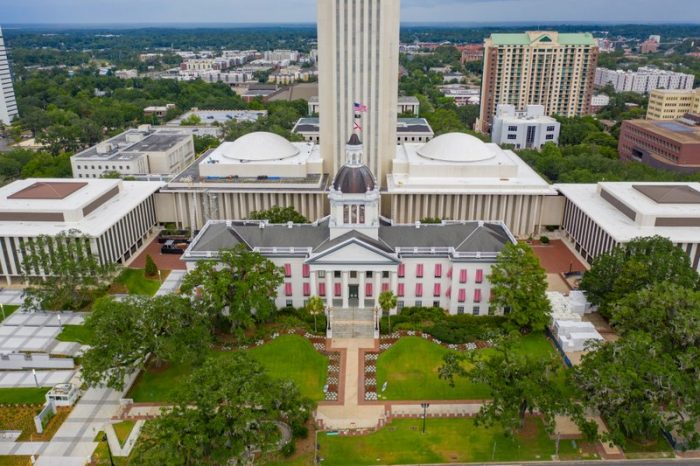Florida passes controversial anti-solar bill, SEIA urges governor to veto

The Solar Energy Industries Association (SEIA) reports the Florida Senate passed its version of the controversial bill (SB 1024) that will undercut the state’s fledgling solar industry.
It’s been reported that the bill was written for legislators by Florida Power & Light, which is evident in the bill’s directive for the state’s Public Service Commission to ensure solar customers “pay the full cost of electric service” and not be “subsidized by the public utility’s general body of ratepayers.”
To achieve that objective, the bill will essentially allow the state’s largest utility to not just phase out the current full retail rate net metering payback, but also tack on whatever fixed charges, monthly minimums or grid access fees are deemed necessary by 2026. But, it sounds like those who own or lease a system by the bill’s effective date would be grandfathered in under the current net metering agreement. So, there’s that.
“This bill is a nightmare for anyone who believes in energy freedom and the rights of people to choose the energy that works for them and their families,” says Will Giese, southeast regional director SEIA. “Net metering has helped over 100,000 Florida homeowners make that choice, and utilities are now banking on the state government to strip those rights away and pad their monopoly hold on electricity.”
Solar only accounts for a measly 1 percent of Florida’s electricity production, and a SolarReviews survey of Florida solar customers shows a dramatic drop in interest if this bill becomes law.
- 74% of respondents would no longer consider going solar in Florida if the proposal is passed that will pay net metering customers at the avoided cost rate versus the retail rate.
- 93% of respondents would no longer consider solar if Florida changed to an avoided cost rate plan AND implemented a monthly grid participation charge.
Even if no other fees are tacked on, just the phase down of net metering would be a big blow to the value of solar in the region. Canary Media reports the current average payback period for a residential solar system in the state is about 11 years, and without net metering that would go up to 17 years.
Giese and other solar advocates are now urging Governor DeSantis to veto the bill, pointing its job-killing effect.
“In the last few years, Florida has seen its solar industry grow to employ 11,000 people and generate over $10 billion of economic activity. States that enact bad legislation like this will see much of that business growth disappear,” Giese says. “This is a simple choice between helping monopolies or helping the people.”





Comments are closed here.